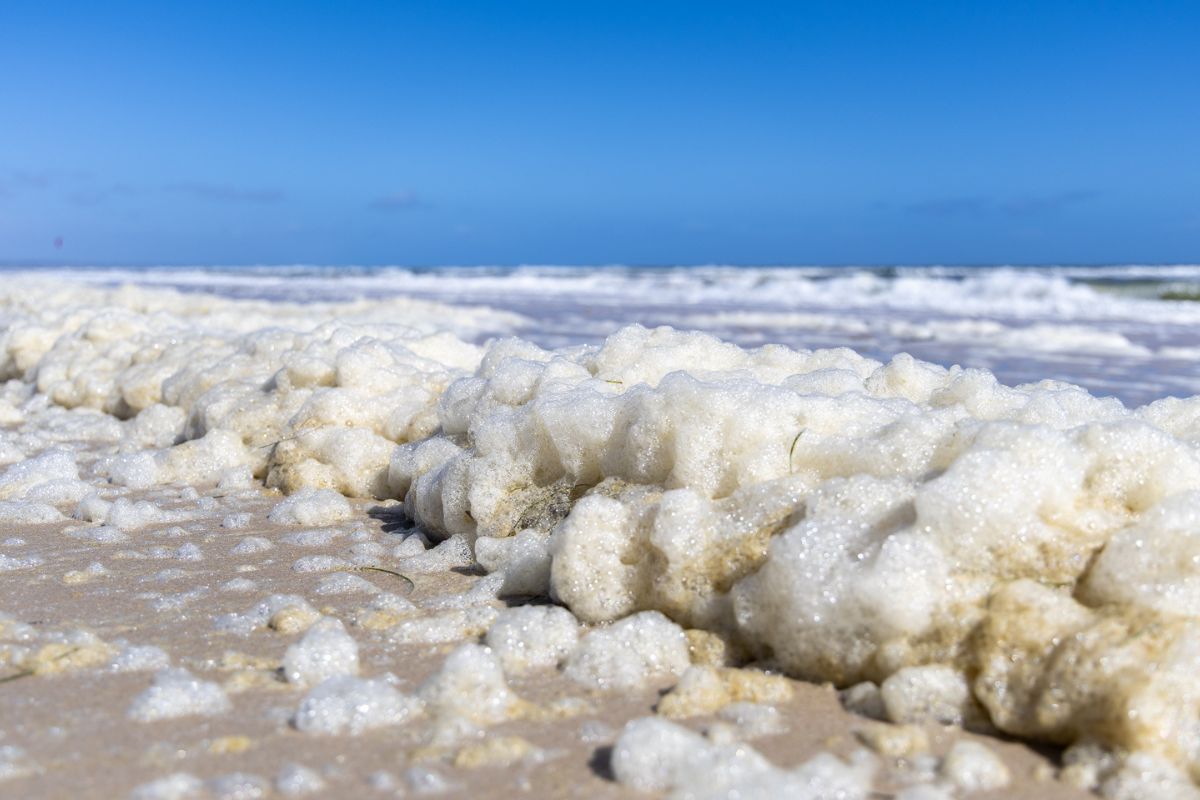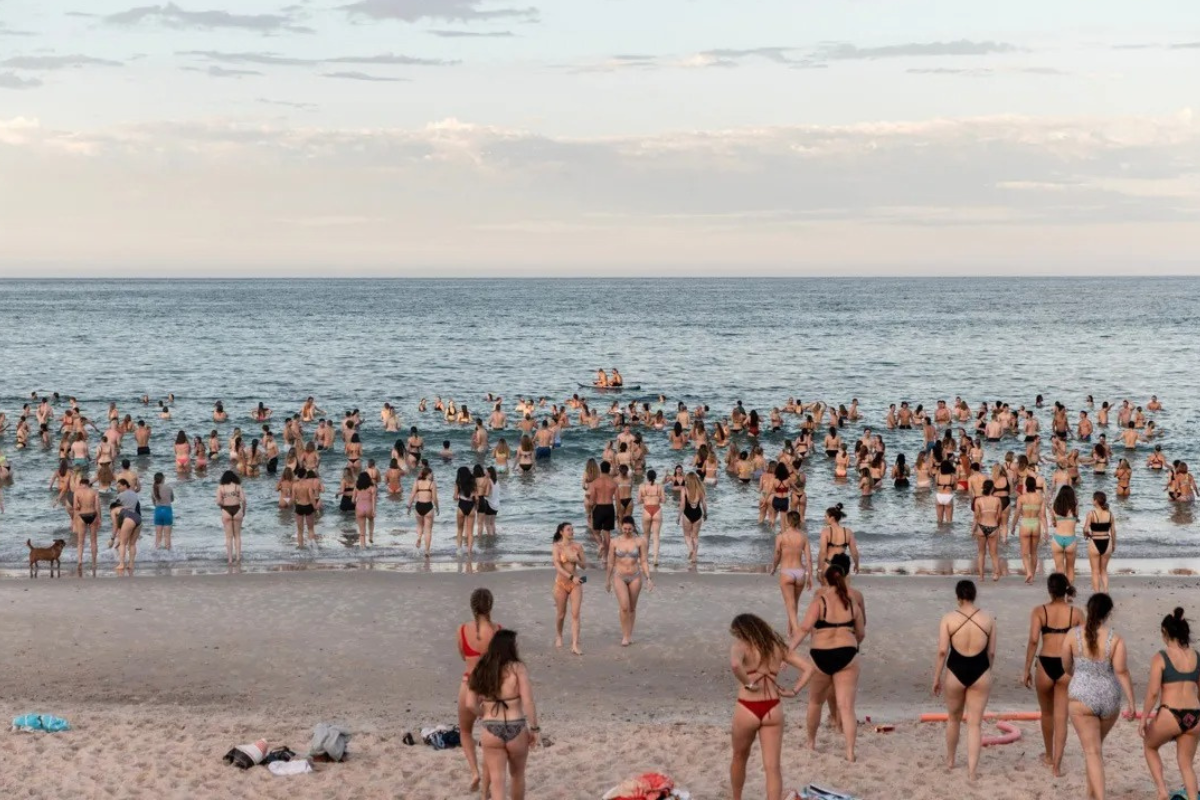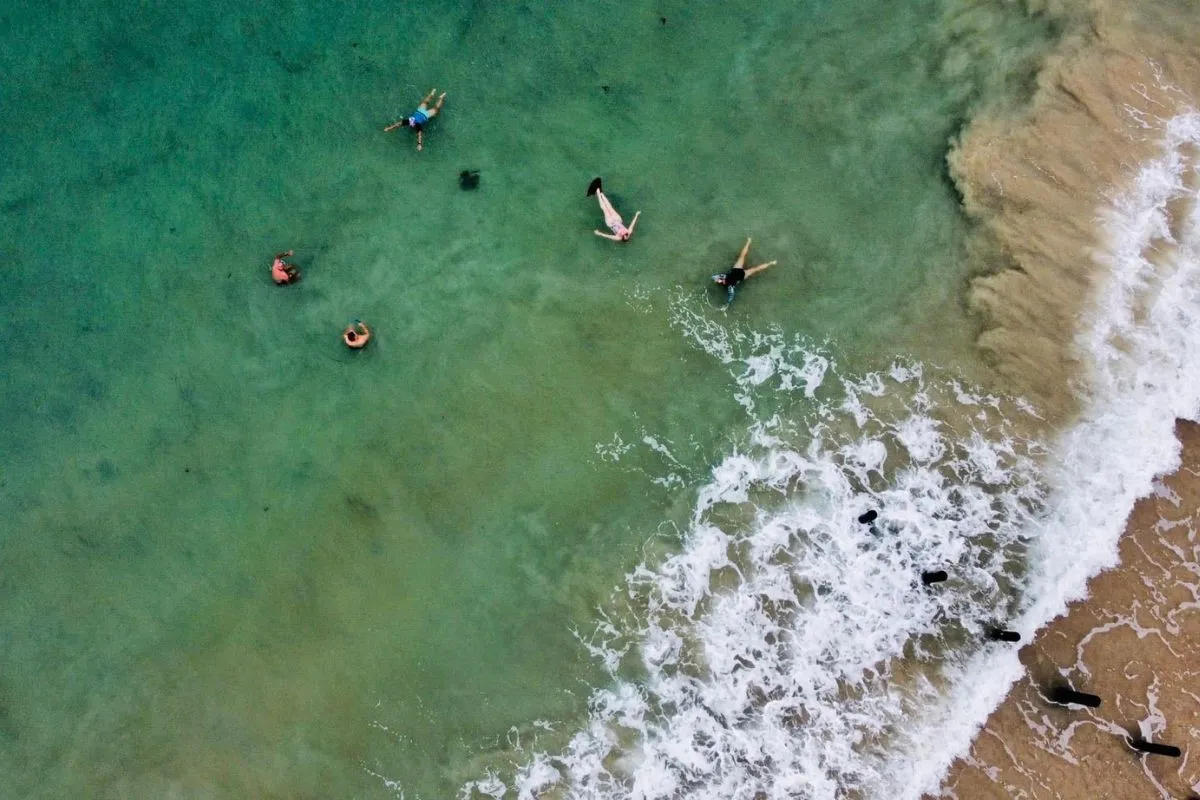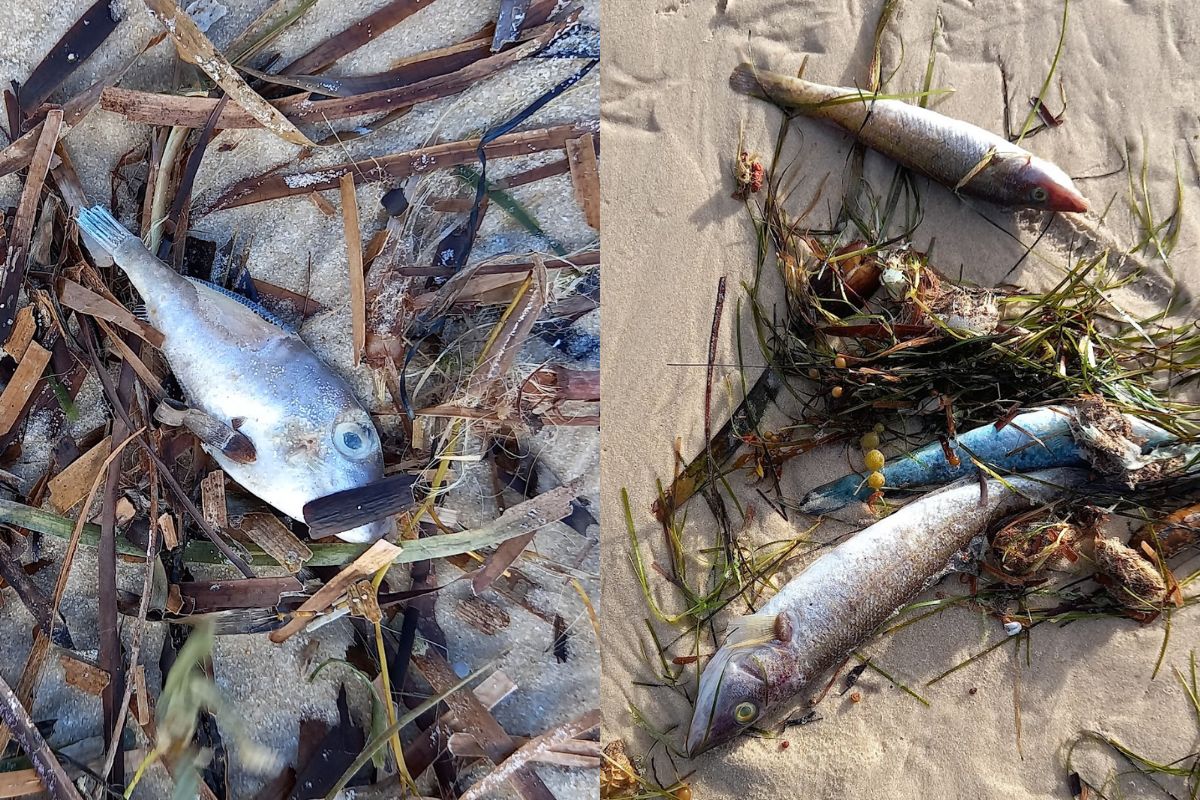‘Loss of our sense of self’: inquiry reveals emotional impact of SA’s algal bloom
Submissions pouring into the federal inquiry into South Australia’s devastating algal bloom crisis reveal the emotional toll the natural disaster has taken on coastal communities. Public hearings start in Seacliff next Tuesday. See the video.
Communities and businesses reliant on South Australia’s ocean to relax, unwind and explore are revealing how their “mental health is suffering” as the ongoing algal bloom crisis continues to impact our coastline.
Some claim to feel “incredibly hopeless” as official figures show the algal bloom has already caused the deaths of more than 13,000 marine animals since March this year and forced swimmers, surfers and divers out of the ocean.
The 114 submissions lodged with the Federal Senate’s committee on Algal Blooms in SA – that is set to start public hearings in Adelaide next week – uncovers the mental anguish ocean lovers are experiencing.
Chilly Pits is an Adelaide social group that has been meeting at Glenelg Beach at sunrise twice a week since November 2022 – but their dips into the ocean have been on pause since July this year, halted by SA Health advice to stop swimming in water that is discoloured, foamy and at spots where there are dead or injured marine life.
“We convened at our usual spot in Glenelg to make this decision and were met with a beach littered with creatures washed up on the shore, lifeless and left to rot,” the moving Chilly Pits submission said.
“This devastation is impactful to our community for a number of reasons. The first, our loss of morning swims is a loss of our sense of self. Swimming in the ocean helped us feel part of something larger than ourselves, connecting us with the diverse aquatic creature population and the other morning swimmers braving cold conditions.
“These connections, crossing generational lines, class, even species – they have been instrumental in breaking out of the bubbles our modern world can trap us in. This has been all the more impactful during the winter season, where enduring cold water has previously been a tonic for seasonal blues.”

The group said cold water provided an adrenaline rush “that we have gotten addicted to”.
“Now, without access to our beloved natural high, our mental health is suffering.”
You might like
Chilly Pits – made up of young Millennials and old Gen Zs – said members felt “incredibly hopeless” about the problem, described as a “domino well down the line in a climate change chain”.
“We have grown up with narratives around individual action to curb climate change. We were taught not to litter and to pick up rubbish even if it is not ours. We were raised using canvas bags instead of plastic and taught to purchase metal straws and reusable coffee cups,” the group said.
“Now, the oceans we are privileged to have access to are in crisis – and our civilian duty feels all for nought [sic].
“We have grown up learning about climate change and we are now reaping the impacts of unresponsive policy from slow-moving decision-makers who are leaving us with a problem we have inherited since birth.”
‘Sadness, grief, numbness’
Salty Sips has been running a free yoga session at both Glenelg and Henley beaches for more than five years – and the group’s submission tells of the psychological impact of the algal bloom.
In the submission penned by wellness business Human.Kind Studios co-founder and 40 Under 40 alumnus Triton Tunis-Mitchell, it describes how discussions in his studios “have been ones of sadness, grief, numbness around the loss of life, loss of future, and in some ways the loss of innocence/ignorance around climate collapse”.
Tunis-Mitchell – a regular surfer on the mid-coast who hasn’t been back in the water since February “for fear of respiratory irritations” – said he was experiencing a “deep sadness of knowing that everything below the water is suffering”.

He has been telling Salty Sips attendees not to swim due to the risk of health issues.
“What a bloody sad thing that is for a much-loved community health event,” he said.
“And for a group of young people to see that the climate and ecosystem failures, and loss of their future, have arrived on our shores.”
The entrepreneur said the algal bloom crisis was not an economic problem for Salty Sips, rather “a psychosocial impact on the health of our members”.
“The vibrancy of our natural places is deeply intertwined with a sense of safety, abundance, connection, meaning, place, hope, and future,” he said.
Stay informed, daily
“Our members have articulated that to us clearly, but it is a universal experience, throughout human history.”
Swimmers call for clarity
Marie Sulda started a local swimming group Brave the Waves five years ago “after the tragic loss of my daughter” as a way to heal through reconnecting with nature.
Her group usually meets at Moana Surf Life Saving Club for a 1km swim once a fortnight. Now, the group is bemoaning the loss of “our emotional well-being, a powerful form of natural therapy, and one of the great joys of living on the South Australian coast”.
“The recent algal bloom has made it unsafe for us to continue our swims,” Sulda said.
“Beyond the heartbreak of being disconnected from this healing ritual, our group is particularly concerned about the lack of consistent and transparent communication around the health risks of swimming during these blooms.”

Sulda called for weekly water quality testing and public reporting for all major beaches: “We do not know whether it is safe to enter the water”.
She also focused on the social and emotional health impacts of the bloom.
“Brave the Waves is not just about exercise; it is a community of connection, grief support, resilience, and celebration of our natural environment,” Sulda said.
“Being unable to safely swim has disconnected us from each other and the coast, especially during times when connection and well-being are more important than ever.”

The comments come ahead of public hearings for the algal bloom parliamentary inquiry next week.
Greens Senator Sarah Hanson-Young said “South Australians have been crying out for answers for over six months”.
“This inquiry is an important step in ensuring that South Australians aren’t left to manage the algal bloom on our own as we still await the declaration that this is a national disaster,” Hanson-Young said.
“From the many submissions we have received, it is clear that the algal bloom is having a massive impact on our communities, businesses and environment.
“As chair of the inquiry, I will focus on making sure that we use these hearings to amplify voices of the local community, scientists and affected industries and to push for a national framework to respond to events like this and ensure our state gets all the resources we need in the short and long-term.”
Public hearings start on September 9 at Seacliff, before heading to Port Lincoln on September 10, Ardrossan on September 11 and Victor Harbor on September 12.
Last night, the SA Greens also secured support from the Upper House for a joint State Parliamentary inquiry into the harmful algal blooms and the State Government’s response.
SA Greens leader Robert Simms expected it to also win support in the lower house.
“The toxic algal bloom is the biggest ecological catastrophe in our state’s modern history, and the Parliament has a responsibility to investigate,” Simms said.









